Minister of Industry and Trade Nguyen Hong Dien said that many investors have ignored procedures and violated regulations while racing against time to enjoy FIT prices.
On the afternoon of June 1, when discussing savings and anti-waste in 2022, National Assembly deputies mentioned waste in policies to encourage renewable energy development.
Mr. Nguyen Van Hien, Director of the Legislative Institute, said that the sudden change in renewable energy investment policy causes difficulties for investors and risks bankruptcy.
The number of projects that cannot be put into commercial operation in time to enjoy the FIT price (preferential price for 20 years) must negotiate with EVN at a price 21-29% lower (according to the electricity generation price framework of the Ministry of Industry and Trade issued earlier this year). As a result, a large amount of wind and solar power output is not put into use, causing waste and pushing renewable energy investors into difficulties, at risk of bankruptcy. In the long term, according to him, this can affect the investment and business environment, attracting investment in renewable energy.
"Since the FIT price delay, over 4,600 MW from the above projects have not been exploited or put into use. Meanwhile, we are lacking electricity and have to buy from foreign countries," he said.
Explaining to the National Assembly today , Minister of Industry and Trade Nguyen Hong Dien said it is undeniable that there is waste if the invested projects are not exploited and used. However, he said that most of the investors of these projects have raced to enjoy FIT prices, ignored or omitted procedures, and even violated the law.
"In order to avoid waste and not be seen as legitimizing wrongdoings and violating the law, we need policies from competent authorities and efforts from investors, ministries, branches and localities to resolve the issue," Mr. Dien said.
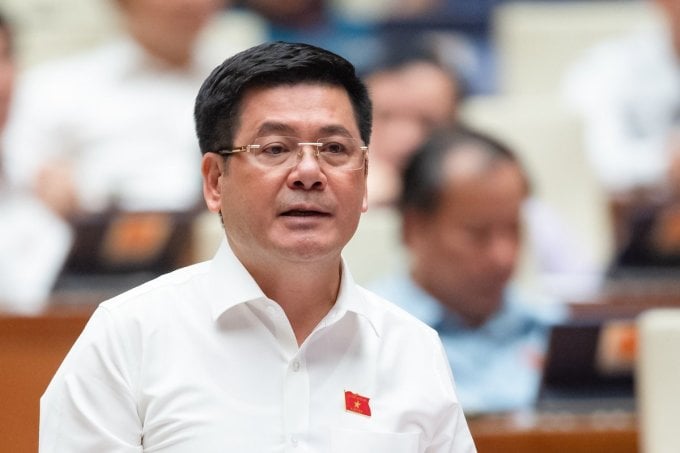
Minister of Industry and Trade Nguyen Hong Dien explains at the National Assembly on the afternoon of June 1. Photo: Hoang Phong
Previously, the Ministry of Industry and Trade said that many investors in transitional renewable energy projects violated legal regulations on planning, land, and construction investment, so they have not met legal procedures. Some investors were asked to supplement their documents since the end of March, but after two months they have not been able to supplement them. Therefore, these projects have not been able to negotiate prices with EVN.
In addition, many investors have not yet completed the legal documents to grant electricity operation licenses for the project - a necessary procedure under the Electricity Law for the exploitation of electricity projects. This is also the reason for the delay in preparing and submitting documents to the competent authorities.
The Minister of Industry and Trade also said that the characteristics of wind and solar power are unstable. Development is mainly in the Central region - where the load is low, so it requires large investments in power transmission lines and storage systems. In addition, there must be some stable power sources, that is, with the ability to generate electricity continuously to compensate for when "the sun and wind decrease, there will be something to compensate".
While in many countries, the baseload power sources include nuclear power, in Vietnam there are only hydropower, thermal power from coal, oil, gas, and biomass. Therefore, these sources are still maintained to ensure system safety even though they are more expensive when input fuel prices are high and carbon emissions are higher.
Regarding the electricity price framework for transitional renewable energy projects proposed by the Ministry of Industry and Trade, which is lower than the previous 20-year preferential price (Fit price), Mr. Dien said that the validity period of the FIT price is shown in the Prime Minister 's decision and not abruptly stopped. Therefore, projects that cannot be put into commercial operation before the deadline cannot apply the FIT price but must negotiate the price to share risks and harmonize interests between the State, businesses and people.
He further explained that the cost of this electricity source depends on the equipment and technology and this price decreases on average 6-8% per year. "Therefore, renewable energy can be the cheapest source of electricity if transmission and storage costs are not included," he said.
The electricity generation price framework is proposed by this Ministry on the basis of the Electricity Law and the Price Law. The parameters for calculating the price framework are based on statistics of 102 solar power plants and 109 wind power plants that have signed power purchase contracts and consultation with international organizations and other ministries and branches.
Mr. Dien added that in the world market, the investment rate for grid-connected solar power projects decreased by 11% per year, and onshore wind power decreased by 6.3% per year in the period 2018-2021. For Vietnam, the preferential price frame issued in 2020 (FIT 2 price) decreased by 8% compared to the preferential price in 2017 (FIT 1 price); and the price frame decreased by about 7.3% compared to FIT 2 price.
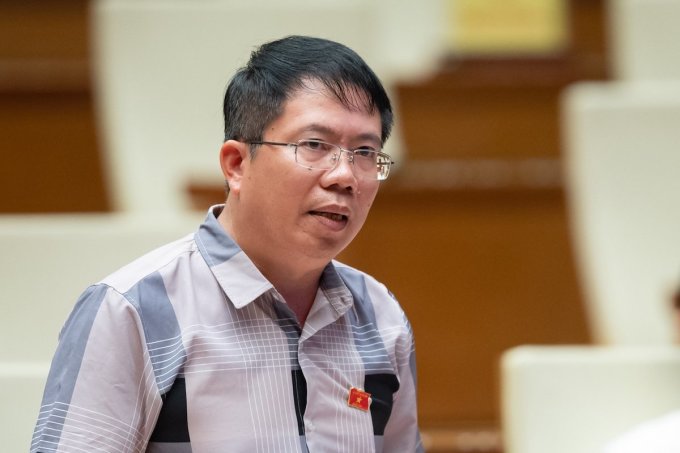
Mr. Nguyen Van Hien, Director of the Legislative Institute of the National Assembly Standing Committee, spoke at the discussion on thrift and anti-waste on the afternoon of June 1. Photo: Hoang Phong
Currently, there are 85 factories that do not qualify for FIT, with a total capacity of more than 4,730 MW. By the end of May, 59 of these factories, with a capacity of 3,389 MW, had submitted their applications to EVN. Of these, 50 projects proposed a temporary price equal to 50% of the price range, or 754-908 VND per kWh (excluding VAT), depending on the type of solar or wind power source.
"The remaining projects that have not submitted their documents do not want to negotiate with EVN within the price range set by the Ministry, have not completed legal procedures, and have difficulties in transmission," Mr. Dien commented.
According to updated data from Vietnam Electricity Group (EVN), by the afternoon of May 31, 9 renewable energy projects had submitted documents for recognition of commercial operation date (COD) - this is the condition for power generation projects to be connected to the grid.
Of these, 7 projects and project parts with a total capacity of more than 430.2 MW were connected to the grid, doubling the operating capacity compared to two days ago. In addition, 40 other projects were approved for temporary prices by the Ministry of Industry and Trade.
However, Mr. Dao Hong Van, member of the Standing Committee of Hung Yen Provincial Party Committee, commented that difficulties and delays in implementing and investing in projects, including renewable energy projects, have "more or less reduced the confidence of domestic and foreign investors and caused damage to people and businesses".
Meanwhile, Director of the Legislative Institute Nguyen Van Hien suggested that the Government and the Ministry of Industry and Trade need to review and adjust policies and "must have shock reduction plans and a reasonable roadmap to avoid sudden policy changes, making it impossible for investors to predict and have appropriate business strategies."
Authorities need to find solutions soon to overcome difficulties and develop the renewable energy industry sustainably. In particular, it is necessary to ensure a suitable and harmonious electricity purchase price mechanism between electricity buyers, investors and users.
To resolve the issue once and for all, avoid wasting resources and harmonize interests, Minister Nguyen Hong Dien requested the National Assembly and the Government to soon issue policies and mechanisms to resolve the issue. According to him, organizations and individuals who do this will not be considered violations.
Regarding electricity imports from Laos and China, the head of the Ministry of Industry and Trade said this is a long-term strategy to ensure national energy security, determined in the national electricity planning in each period. Electricity imports have been implemented many years before China, since 2010, and Laos, since 2016.
Minister Nguyen Hong Dien said that importing electricity is necessary to diversify the types of power sources, so that in the future renewable energy sources can be developed while there is no other alternative source of electricity.
In addition, the rate of imported electricity is very small, about 572 MW, equal to 0.73% of the total system capacity and is for border areas. Not to mention, imported electricity is clean electricity, cheaper than renewable electricity sources.
Source link


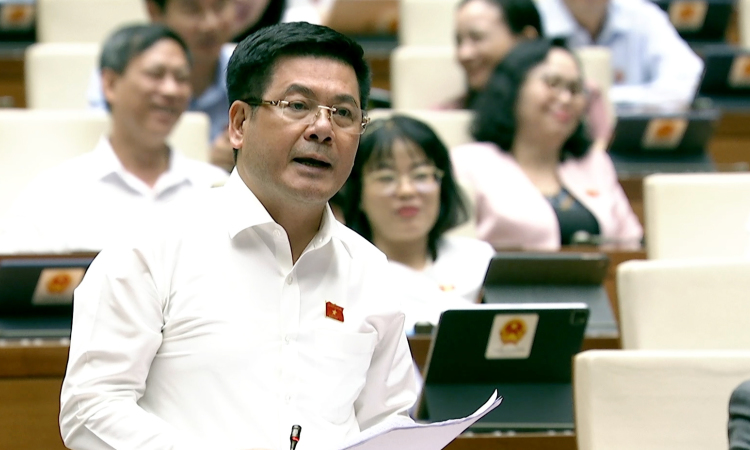






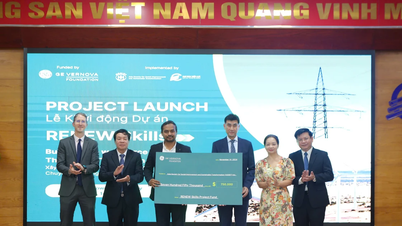

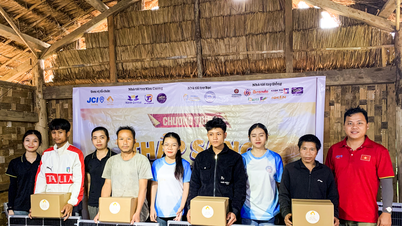








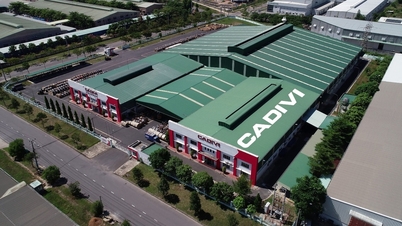
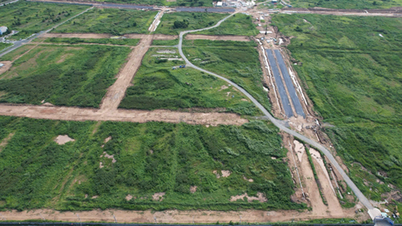

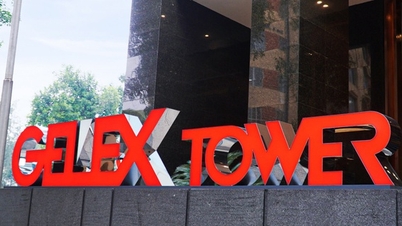















![[Photo] Keep your warehouse safe in all situations](https://vphoto.vietnam.vn/thumb/1200x675/vietnam/resource/IMAGE/2025/10/1/3eb4eceafe68497989865e7faa4e4d0e)





























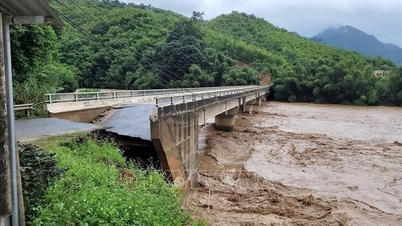

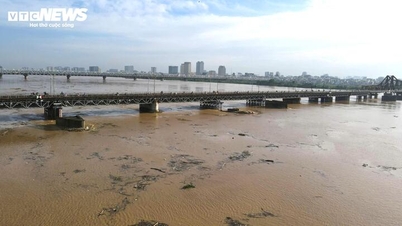








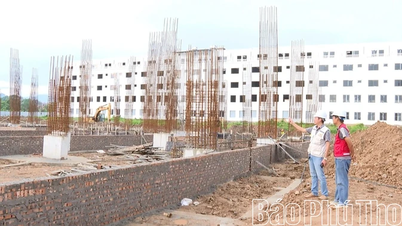





















Comment (0)